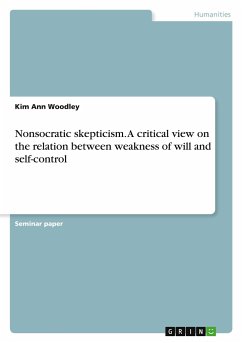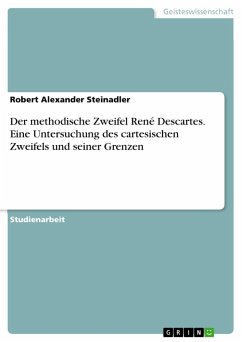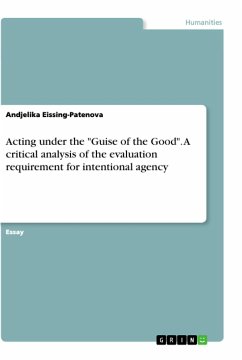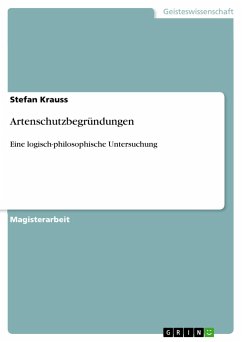Seminar paper from the year 2019 in the subject Philosophy - Theoretical (Realisation, Science, Logic, Language), grade: 2,0, Bielefeld University (Abteilung Philosophie), course: Willensschwäche, Willensstärke, Willenskraft, language: English, abstract: This paper will be about reconstructing the argumentation of "Skepticism about Weakness of Will" (1977) by Watson and about discussing if his proposal is plausible. My main thesis is that he cannot give a clear answer to the question of when exactly a person acts weak-willed, either. One point of criticism will be about him introducing the term "self-control" as a solution. We will see that this kind of solution creates new issues. For instance, how do we know if and when a person is or should be capable of self-control? A second point will be about Watson's argument that we can hold a person responsible for acting weak-willed because he/she should have learned and applied the skills needed for resisting but didn't. What is troubling here, underlies the same problem than the previous question. Are we really able to tell when this is the case? And what are the consequences if we cannot say for sure when a person acts weak-willed? In "Skepticism about Weakness of Will" (1977) Watson challenges the common account whose proposal consists of two components: First, it believes a weak-willed action to be intentional and against the person's better judgment. Second, it claims such actions to be free in the sense that the person could have resisted acting weak-willed. Watson himself comes to the opposite conclusion regarding the second component (a weak agent could not have resisted acting against his/her better judgement in the moment of action) based on his main thesis: "Weakness of will involves the failure to develop certain normal capacities of self-control."








